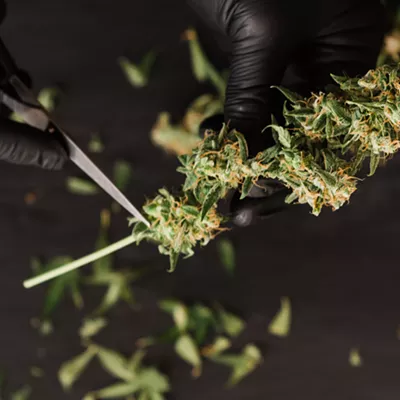During election season, we talked a lot about the politics behind Proposition 205. Well, it seems a new chapter has opened as Arizona Attorney General Mark Brnovich threw the book at Insys Therapeutics, last week.
Over the past several months, Insys has been hit with lawsuit after lawsuit across the country. Last week, Arizona joined 21 other states in holding Insys accountable for illegally pushing their opioid drug, Subsys.
Insys, if you'll remember, is the Chandler-based opioid manufacture that donated $500,000 to the Arizonans for Responsible Drug Policy to fight Prop 205. Aside from medical marijuana being a substitute to some ailments treated with opioids, Insys also plans to release their own THC pill, Syndros. (You know, the one that sounds like a Transformer.)
Brnovich is accusing Insys of jeopardizing patient safety by lying to doctors, insurers and patients to inflate the company's income.
"Insys lied to insurers, concealed key facts from doctors and patients, and paid doctors sham 'speaker fees' in exchange for writing prescriptions, all in order to increase the sales of Subsys, without regard for the health and safety of patients," he said in a statement.
He also estimates the company "made hundreds of millions of dollars from its deceptive scheme." That's important because under the law which Brnovich is using to sue the company—Arizona's Consumer Fraud Act—Insys could be on the hook for all that money they made in addition to reparations to patients and families.
Brnovich sent Insys a "civil investigative demand," according to the Arizona Daily Sun. From the information he received, his office identified three doctors responsible for the majority of Subsys sales over a five-year period. The trio made up just less than two-thirds of $51.9 million in sales during that time period.
The lawsuit comes three weeks after J.P. Holyoak, the chairman of Prop 205's "Yes" campaign, wrote an op-ed piece for AZCentral criticizing Governor Doug Ducey's lethargy towards the opioid crisis. Ducey declared the crisis a public health emergency in July, and this lawsuit is the first major development in his campaign to curb opioid addiction.
Holyoak also called out Yavapai and Maricopa county attorneys Sheila Polk and Bill Montgomery. Polk was the board chair for ARDP while Montgomery was just awfully vocal about his confusion.
Hopefully, by now, the irony has sunk in for Polk in an organization for "responsible drug policy" accepting a $500,000-donation from a company that might be responsible for killing people with its drug. That's just bad policy, Polk.
As vindicating as the lawsuit may be for the marijuana industry, the underlying reality is that Insys's unethical practices may have actually resulted in deaths from opioid overdoses.
Last year, 790 Arizonans died from opioid overdoses. This summer, Ducey ordered the Arizona Department of Health Services to provide weekly updates on statistics and deaths. The reports typically find between 152 and 259 "possible opioid overdoses" per week. The latest report says 35 percent of those had an opioid prescription within the past two months.
Insys isn't the entire picture, but at least it's a start.







